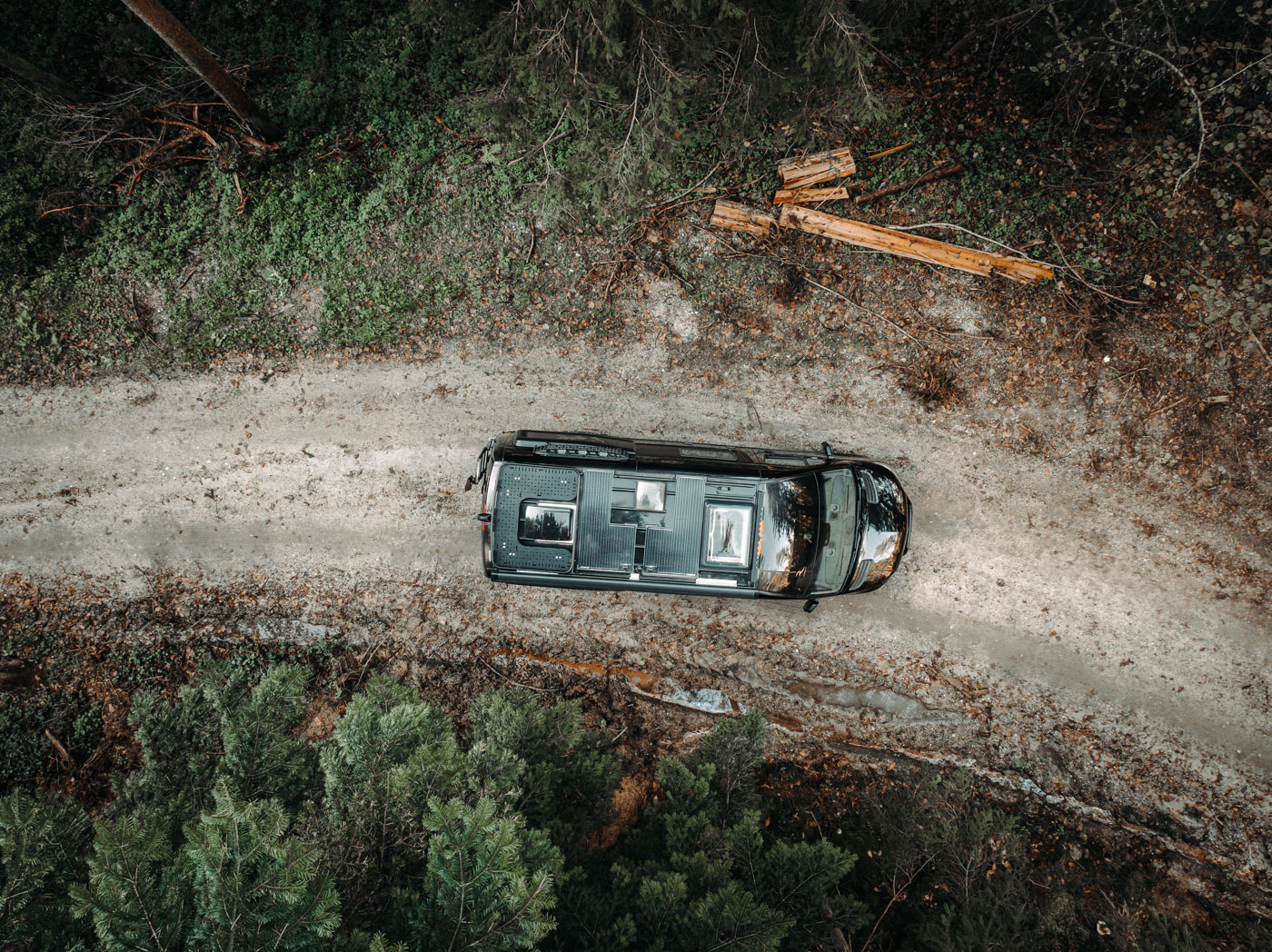Before diving into specific practices, it's important to understand what wild camping actually means. In most contexts, wild camping refers to staying overnight in places that aren't designated campgrounds or caravan parks—typically in natural settings away from populated areas.
It's worth noting that the legality of wild camping varies significantly by location. In Scotland, for example, the Land Reform Act has established the right to wild camp responsibly on most unenclosed land. However, in many other parts of the UK and Europe, wild camping exists in a legal gray area or may be explicitly prohibited.
"Surely wild camping is the dream for most vanlifers? The idea of discovering remote places, being at one with nature, waking up surrounded by stunning landscapes or wildlife! You will have to sacrifice some day-to-day comforts, but if you are happy with this, then wild camping could be for you and your family."
Even as a family of four with a four-legged companion, we've found the experience of informal camping incredibly rewarding, though it comes with its own unique set of challenges and learning opportunities.
The foundational principle of respectful wild camping is leaving absolutely no evidence of your stay. This goes beyond simply not littering—it means returning the spot to exactly the condition you found it in, or ideally, even better.
Practical steps include:
The wild camping community thrives on mutual respect for these principles—responsible campers help ensure access remains possible for everyone.
Before heading to a new area for wild camping, invest time in understanding:
This research not only helps you stay on the right side of regulations but also demonstrates respect for local communities and their resources.
Modern technology has made finding suitable wild camping spots significantly easier. Apps and websites like Park4night and Britstops help identify locations that are:
These platforms often include valuable user reviews that can highlight potential issues or special considerations for each location.
Wild camping shouldn't mean bypassing local economies. Make a conscious effort to:
This reciprocal relationship helps build goodwill toward the van life community and creates sustainable economic benefits for the areas you enjoy.

Perhaps the most critical rule of wild camping is proper waste management:
Even urine can damage vegetation and create health hazards—use designated facilities or proper portable solutions.
The etiquette of wild camping is clear on duration:
This approach minimizes impact on the environment and reduces the likelihood of complaints or restrictions.
Fire management extends beyond active fires:
A properly managed fire should leave no trace after your departure.
Sound travels surprisingly far in natural settings:
The serenity of wilderness settings is a precious resource—preserve it for others.
Respect clear boundaries by avoiding:
These restrictions usually exist for good reasons—ignoring them can lead to increased limitations for all wild campers.

While following these dos and don'ts is essential, truly successful wild camping embodies a deeper philosophy:
Connection over Convenience: Embracing occasional discomfort to experience extraordinary places.
Mindfulness over Materialism: Focusing on experiences rather than recreating home comforts.
Stewardship over Consumption: Seeing yourself as a temporary guardian of the places you visit.
Community over Individuality: Recognizing that your actions affect both nature and other outdoor enthusiasts.
Wild camping offers unparalleled opportunities to experience the natural world on its own terms—starry skies unpolluted by artificial light, dawn chorus unmarred by traffic noise, and landscapes viewed in their most authentic state. With these privileges comes the responsibility to preserve these experiences for future generations.
By following these dos and don'ts, you're not just ensuring your own positive experience but contributing to a sustainable culture of respectful outdoor recreation. The future of wild camping depends on each of us demonstrating that freedom and responsibility can coexist harmoniously in the natural world.
Remember: Take only photographs, leave only footprints (and ideally, not even those).